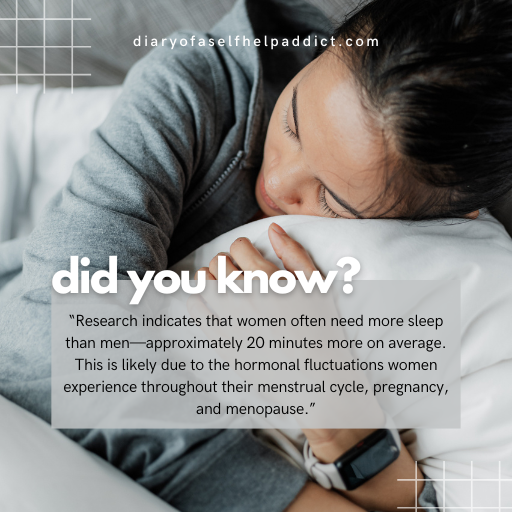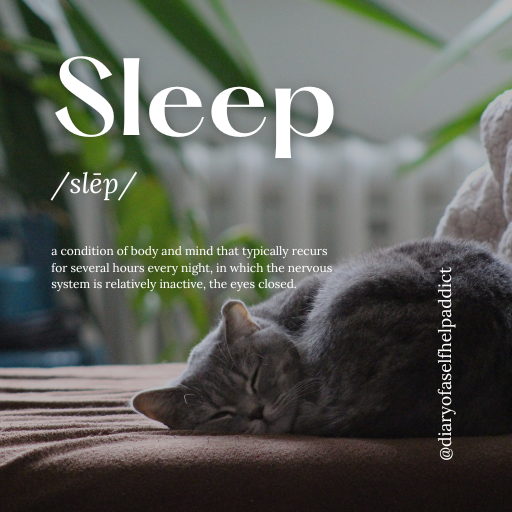
Sleep is often the unsung hero of a healthy lifestyle. While diet and exercise are frequently spotlighted in conversations about weight loss and wellness, sleep quietly plays a critical role in our ability to burn fat, maintain energy, and support overall health. This post explores the fascinating science behind quality sleep and its connection to weight management, why sleeping before midnight matters, and the differences in sleep needs between men and women.
Sleep and Weight Loss: The Hidden Connection
Sleep is far from a passive activity when it comes to weight loss. Research shows that our ability to burn fat is intricately linked to the quality and duration of our sleep. According to a study published in the Annals of Internal Medicine, individuals who slept only 5.5 hours per night lost lean body mass more than fat. In contrast, those who slept for 8.5 hours lost a more significant proportion of fat. This highlights the critical role of sufficient sleep in ensuring effective fat loss (Annals of Internal Medicine, 2010).
One fascinating finding is that our bodies only entirely switch to fat-burning mode once we’ve been asleep for at least seven hours. Our bodies produce growth hormones during deep sleep and repair tissues essential for fat metabolism. Shortchanging your sleep disrupts this process, making it harder for your body to burn fat efficiently.
Why Sleeping Before Midnight is a Game Changer
Have you ever heard the phrase, “An hour of sleep before midnight is worth two after”? It turns out there’s some truth to this adage. Our bodies follow a natural circadian rhythm, a 24-hour cycle that governs sleep-wake patterns and other biological processes. This rhythm is heavily influenced by natural light and peaks in its therapeutic potential during the early nighttime hours.
Studies suggest that sleep’s deepest and most restorative stages—often referred to as “slow-wave sleep”—occur in the first half of the night. You maximize the time spent in these critical restorative stages by aligning your sleep schedule with your circadian rhythm and aiming to be asleep well before midnight (Lancet, 2022).
Benefits of sleeping early include:
- Improved Hormonal Balance: When you sleep according to your natural rhythm, key hormones like melatonin (which regulates sleep) and cortisol (which regulates stress) are optimized.
- Enhanced Fat-Burning: With earlier sleep, your body has more time to enter deep sleep stages, where growth hormone production peaks and fat metabolism is prioritized.
- Better Mental Health: An early bedtime is linked to reduced anxiety and depression, creating a positive cycle for overall health.
Practical tips for sleeping earlier:
- Limit screen time in the evening: Blue light from devices can interfere with melatonin production.
- Set a consistent bedtime: Going to bed at the same time every night helps regulate your circadian rhythm.
- Create a calming evening routine: Activities such as reading, stretching, or meditating can signal your body that it’s time to wind down.
How Much Sleep Do Men and Women Need?

While seven to nine hours of sleep is the general recommendation for adults, men and women have slightly different sleep requirements due to hormonal and biological differences.
Women: Research indicates that women often need more sleep than men—approximately 20 minutes more on average. This is likely due to the hormonal fluctuations women experience throughout their menstrual cycle, pregnancy, and menopause. These changes can make falling and staying asleep harder, increasing the need for restorative sleep.
- A study in Sleep Medicine found that women are more likely to experience insomnia than men, further highlighting the importance of prioritizing quality sleep (Sleep Medicine Research, 2013).
Men: While men may not require as much sleep as women, they are more prone to sleep disorders like sleep apnea. This condition causes breathing interruptions during sleep, significantly impacting overall health and energy levels.
Why the Difference Matters
Understanding these differences allows men and women to tailor their sleep strategies. For example, women might benefit from naps during high-stress periods, while men might focus on reducing risk factors for sleep apnea.
Funny Tip: Whenever my husband gives me a hard time about sleeping longer than him, I remind him, “Science says I need more sleep than you—it’s practically doctor’s orders!” (That usually keeps him quiet long enough for me to sneak in another 20 minutes.)
The Domino Effect of Poor Sleep
Neglecting sleep doesn’t just stall weight loss—it triggers a cascade of negative effects across your entire body. Here’s what happens when you skimp on sleep:
- Increased Hunger: Sleep deprivation disrupts the balance of ghrelin and leptin, the hormones responsible for hunger and satiety. This causes people to crave high-calorie foods (Nutrients, 2022).
- Slowed Metabolism: Without enough sleep, your body becomes less efficient at burning calories, thereby storing more fat.
- Impaired Decision-Making: Sleep loss affects the brain’s prefrontal cortex, making it harder to resist unhealthy food choices (Scientific Reports, 2017).
- Reduced Workout Performance: Fatigue lowers energy levels and decreases the effectiveness of physical activity.
How to Prioritize Quality Sleep
If you’re ready to make sleep a cornerstone of your wellness routine, here are some actionable tips:
- Create a Sleep Sanctuary: Keep your bedroom dark, cool, and quiet. Invest in blackout curtains and a comfortable mattress.
- Stick to a Routine: Go to bed and wake up at the same time every day, even on weekends.
- Limit Stimulants: Avoid caffeine, nicotine, and heavy meals late in the day.
- Manage Stress: Incorporate relaxation techniques like yoga, journaling, or meditation into your daily routine.

Final Thoughts
Sleep is more than a nightly recharge—it’s a powerful tool for weight loss, hormonal balance, and overall health. You can unlock its full potential by understanding the science behind sleep and making intentional lifestyle adjustments.
Remember, a healthy lifestyle isn’t just about what you eat or how much you move—it’s about creating harmony across all areas of your life. Prioritizing sleep might be the missing piece to your wellness puzzle.
Did this post inspire you to revamp your sleep routine? Let me know in the comments! Also, remember to follow me on Facebook for more self-help tips and lifestyle hacks.
My Favorite Products For Better Sleep
Blue Light Glasses and Sleep-Friendly Lighting (I am not an Affiliate)
Viva Ray Blue Light Blocking Glasses (I am not an Affiliate)
Bamboo Bed Sheets: Best sheets ever! Even my husband thinks so!
Hatch Sunrise Alarm Clock: My daughter’s favorite.
My Favorite Young Living Oils for Sleep: Many use Lavender for sleep, but I prefer a blend of ‘Peace and Calming’ and a couple of drops of Valor.
Several of my family members say Alteril is their favorite sleep supplement.
I personally love Magnesium Glycinate, which helps me sleep.
As an Amazon Associate and Young Living Affiliate member, I earn a small commission from qualifying purchases at no extra cost to you. Thank you for supporting my small business! I truly appreciate it! Read my privacy and disclosure here.
Pin It For Later

References
- Annals of Internal Medicine, 2010. Study on the effects of sleep deprivation on fat loss.
- Lancet, 2022. Research on circadian rhythms and optimal sleep timing.
- Sleep Medicine Research, 2013. Study on sleep differences between men and women.
- Nutrients, 2022. Impact of sleep on hunger-regulating hormones.
- Scientific Reports, 2017. Effects of sleep deprivation on decision-making.

[…] Related Read: WHY QUALITY SLEEP IS THE SECRET INGREDIENT TO BETTER HEALTH […]